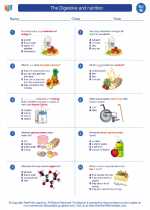Vegetable Oil
Vegetable oil is a type of oil derived from various plant sources such as seeds, nuts, or fruits. It is commonly used in cooking, food preparation, and in industrial applications. The most common types of vegetable oils include soybean oil, canola oil, sunflower oil, and palm oil.
Composition of Vegetable Oil
Vegetable oils are composed primarily of triglycerides, which are made up of three fatty acid chains attached to a glycerol molecule. The composition of fatty acids in vegetable oils can vary, leading to differences in flavor, texture, and nutritional properties.
Properties of Vegetable Oil
- Viscosity: Vegetable oils have a relatively low viscosity, making them suitable for use in cooking and as ingredients in various food products.
- Smoke Point: Each type of vegetable oil has a specific smoke point, which is the temperature at which it begins to break down and produce smoke. This is an important consideration when choosing an oil for cooking methods such as frying.
- Flavor and Aroma: Different vegetable oils have distinct flavors and aromas, which can impact the taste of the foods they are used in.
- Nutritional Content: Vegetable oils can vary in their content of unsaturated and saturated fats, as well as their levels of essential fatty acids such as omega-3 and omega-6.
Common Uses of Vegetable Oil
Vegetable oil has a wide range of uses, including:
- Cooking and Frying: Vegetable oil is commonly used for sautéing, frying, and baking due to its high smoke point and neutral flavor.
- Food Production: It is used as an ingredient in processed foods, salad dressings, and margarine.
- Industrial Applications: Vegetable oil is utilized in the production of biofuels, lubricants, and as a base for cosmetic and personal care products.
Environmental and Health Considerations
The production and consumption of vegetable oils can have environmental and health implications. Issues such as deforestation for palm oil plantations, the use of genetically modified crops for oil production, and the impact of high consumption of certain oils on human health are important considerations in the use of vegetable oils.
Study Guide
When studying vegetable oil, consider the following questions:
- What are the primary sources of vegetable oil?
- How does the composition of fatty acids in vegetable oils affect their properties?
- What are the common uses of vegetable oil in cooking and food production?
- Discuss the environmental and health considerations associated with the production and consumption of vegetable oils.
◂Science Worksheets and Study Guides Eighth Grade. The Digestive System & Nutrition

 Worksheet/Answer key
Worksheet/Answer key
 Worksheet/Answer key
Worksheet/Answer key
 Worksheet/Answer key
Worksheet/Answer key
 Vocabulary/Answer key
Vocabulary/Answer key
 Vocabulary/Answer key
Vocabulary/Answer key
 Vocabulary/Answer key
Vocabulary/Answer key
 Vocabulary/Answer key
Vocabulary/Answer key
 Vocabulary/Answer key
Vocabulary/Answer key
